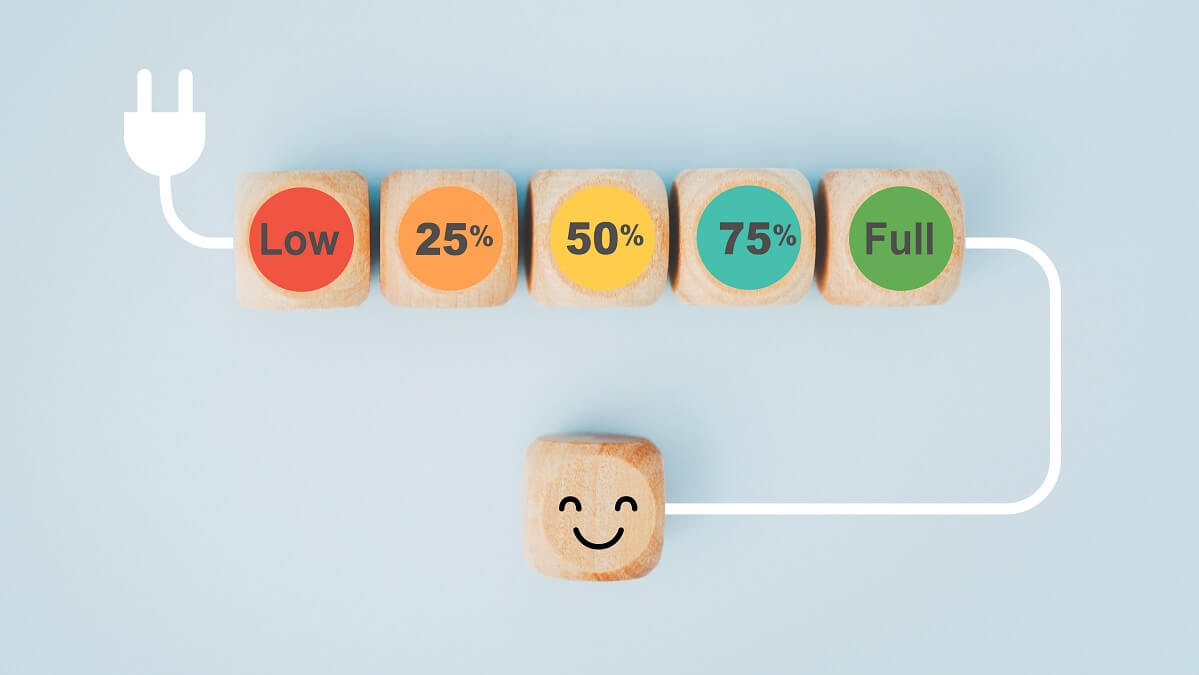Getting older doesn’t mean you should feel tired and run down. Visiting friends and family, exercising, or spending time in the garden should feel like fun, not an exhausting chore. Boosting your energy is possible at any age, so try these tips to turn an energy drain into an energy gain.
Inside most cells are energy-making powerhouses called mitochondria. Mitochondria process the breakdown product of foods – carbohydrates, fats and proteins – and convert them to cellular energy in the form of a molecule called ATP. Your mitochondria need certain nutrients to function well, and mitochondrial function and efficiency can decrease with age. So how do you look after your mitochondria and boost your energy levels naturally as you get older?
Here are six tips to boost your energy levels naturally
1. Reduce stress
When you’re stressed, you use a lot of energy. It affects your sleep and you usually reach for junk food, caffeine or alcohol to get you through, depleting your mitochondria of much-needed nutrients. Instead, introduce relaxing activities into your day. For example, try going for a walk or catching up with friends, or just playing 15 minutes of your most favourite music at the end of the working day. Meditation, yoga and tai chi have also been shown to help reduce stress.
2. Keep moving
Research shows that regular activity helps you sleep better and gives your cells more energy to burn. So, keep active during the day, take the stairs instead of the lift, get up out of your chair frequently or invest in a standing desk at work. Regular exercise, especially resistance training, improves energy as increasing skeletal muscle increases mitochondrial density and your energy output.
3. Eat for energy
Eat a healthy diet rich in unprocessed wholefoods. Fresh fruits and vegetables, wholegrains such as brown rice and quinoa and quality proteins – think grilled fish or lentil dahl, not a drive-through burger – give your body what it needs to make energy. Avoid snack foods full of trans fats and sugar, and keep alcohol consumption moderate.
4. Sort out your sleep
Poor sleep impairs your ability to do day-to-day tasks that require additional energy. Improve your sleep by creating a regular sleep routine, avoiding caffeine in the afternoon, and reducing your screen time. If you think snoring or sleep apnoea may be contributing to poor sleep, speak to your healthcare practitioner.
5. Set priorities
Life can be busy with work, family and social commitments and not everyone is very good at asking for help when they need it. Setting priorities stops you from burning the candle at both ends and helps you better manage your energy.
6. Ensure you have adequate levels of B vitamins and ubiquinol
B group vitamins act as co-enzymes to help the body convert carbohydrates, fats and protein into energy and transfer energy-containing nutrients around the body. Eating wholegrains, legumes, leafy green vegetables, and proteins such as beef, poultry and fish will help you get the B group vitamins you need to support energy metabolism.
Ubiquinol is the active form of Coenzyme Q10 (CoQ10), a powerful antioxidant found in organ meat, fatty fish, spinach and strawberries, and is needed by the mitochondria to make cellular energy. The cells convert CoQ10 to ubiquinol for transporting around the body.
As we age, our body’s ability to synthesise CoQ10 and convert it to ubiquinol decreases. While this antioxidant is found in many foods – including oily fish, meats and wholegrains – it is difficult to achieve the daily recommended dose without needing to consume excessive amounts, e.g. 14kg of sardines or 60 avocados. In this case, you might want to speak with a healthcare practitioner about ubiquinol supplementation.
Eating well, keeping your body moving and finding something relaxing to do during your day helps give your body what it needs to sleep well, manage stress and produce energy. Supplementing nutrients such as ubiquinol may also help support mitochondrial health and energy production as you age.
Dr Beth Steels has been in clinical practice as a biochemical nutritionist for more than 20 years. Her focus as a practitioner is to look for the underlying causes of imbalance or illness and focus on rebalancing the metabolism to allow the body to correct itself.
Have you noticed your energy levels ebb and flow more often as you’ve aged? What have you tried to give your body a boost? Why not share your experience in the comments section below?
Also read: Nope, coffee won’t give you extra energy
Disclaimer: This article contains general information about health issues and is not advice. For health advice, consult your medical practitioner.

